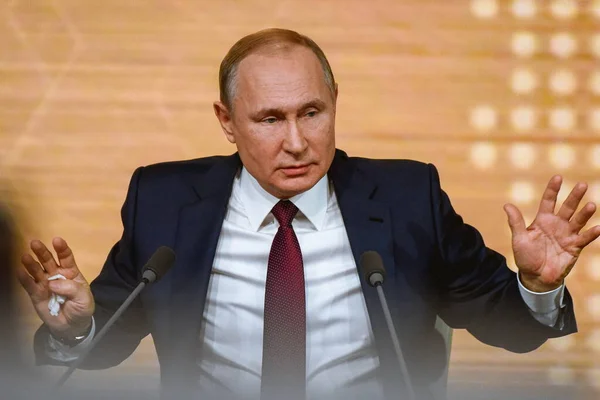What is stronger “iron century” or “red flags”?

Yaroslav Razumov
Evgeny Porokhov, Director of Research Institute of Financial and Tax Legislation, candidate of juridical science answers the following questions by “Exclusive”.

— In early 1990s Kazakhstan plunged into at that time new for the country notion of attracting large scale foreign investments. The result is well known: investments took place and many contracts were signed. However, even officially people sometimes admitted that due to lack of experience the country’s interests were not adequately protected. To your opinion, were the conditions offered to the foreign companies really adequate, or has our country actually offered too much?
— In my opinion, which is similar to the opinions of most experts, Kazakhstan obtained more lost during that time. It has been confirmed by the dynamics of economic processes in the country during recent years.
After collapse of the USSR our Republic was left without incomes, communication systems, and specialists in management and marketing. The country had to attract all of the potential for its economic growth until national capital and qualified personnel have been formed. The legislation had a lot of blanks, and the contracts on privatization and production of natural resources were arranged quickly. The largest oil and gas producers entered our country. Although the contract terms were maximally beneficial for them, at least the oil industry was in the hands of specialist who new what to do with it. However, the interests of our country were also taken into account, which allowed surviving in difficult economic conditions of that time.
We should also take into account that Kazakhstan didn’t have a formed concept of state incomes, the country had just moved on from state control of the economy, and the government wasn’t that it would be able to survive based on indirect sources of income. The financial incomes from privatization contracts allowed covering the most dangerous holes in budgets of 1991 – 1994. They were used to create conditions for forming independent taxation system, test it in action, and define main directions of investment policy, which has influenced the legislation on foreign investment adopted in 1994. This legislation defined conditions for foreign investors that were more favourable than even to local investors; the legislation has also for the first time defined the boarder between the interests of foreign investors’ and Kazakhstan’s interests. However, in general it is true that the legislation was very loyal towards foreign investors. After all, at that time the issue of relations between foreign and local capital wasn’t urgent, they didn’t compete with each other. That situation was considered to be normal by everybody. However, according to theory of international law the national regime is the most favourable for foreign capital, this means that foreigners have the same rights and liabilities as citizens of the country.
Considering the periods of government encouragement of foreign and domestic investments, the period from 1991 till 1994 was the “golden age” for foreign investors in our Republic. It was the time of absolutely favourable conditions for them. The period is characterized by long term contracts, with duration of 20, 30 or 50 years, signed individually with large foreign investors mainly for production of natural resources. Those contracts defined individual taxation regime for foreign investors. At that time the officials promoted the principle of stable taxation regime, defined in the contract for the duration of the contract, regardless of future changes in taxation legislation of Kazakhstan. This proof from future changes in taxation was investors’ long term protection from zigzags of political and legislative situation. This is still effective now.
— That period wasn’t too long; since second half of 1990s the situation started to change, though slowly…
— Yes, Kazakhstan’s independent investment policy was clearly formed in 1997 after adopting the law on state support of direct investments. Then the priority sectors of the economy, the term “direct investments” and benefits provided to investors were defined. The officials have made an attempt to form and develop non-resource based assets. That legislation introduced quite liberal measures of full and partial exemption from profit taxes, realty taxes, provision of natural grants, etc. That was the stage of systematic establishment of domestic business. Interestingly, after that time local businessmen started to argue that foreigners were protected from changes of legislation, while domestic producers acted in current regime of taxation.
Maybe the law adopted in 1994 “On foreign investments”, which provided foreign investors with guarantee against deterioration of their conditions, was preliminary step towards the situation. Article 6 of the law consolidated all of the guarantees point by point, and the attempts to change the article later haven’t been very successful. However, the government has obtained the right to change the excise-duties for products imported by foreign investors into Kazakhstan. But in general, foreign investors continued to benefit from favourable conditions, while sometimes crossing the line by their inappropriate actions and expenditures. The “golden age” was over, but it changed to quite comfortable “silver age”.
— According to traditions and history’s logic, next is “bronze age”.
— Yes. The period from 1997 till 2003 was the period of forming the purposeful and sensible investment policy of Kazakhstan; it included encouraging foreign investments into priority sectors of economy, regardless of the sources of the investments, and convergence of legal regulation of domestic and foreign investments. Nevertheless, foreign investors didn’t lose their privileges compared to domestic investors, and they still were regulated based on different legislation. This was achieved by adopting the law of Republic of Kazakhstan (RK) “On government support of direct investments” on 28 February 1997 and keeping the law of RK “On foreign investments”. These changes were the results of the growing conflict between foreign and domestic capital. Foreigners started to feel uncomfortable while local bourgeoisie was gaining their foothold. It became clear that without reconsideration of investment regulations the situation contradicted the principles of international law and issues of national security. The result was adopting the law “On investments”, which is still effective. According to this law, all new foreign investors in Kazakhstan are equal in their rights with domestic investors. In deed, using your analogy, “bronze age” came.
— If we continue the analogy, next is “iron age” for foreign investors; more to the point is “wolf-hound age”, here is such image in Russian poetry… Would the government’s attack on Kashagan’s consortium be from that age?
— Let’s leave wolf-hounds within the boundaries of poetical images. But there is much to discuss here. The government, having obtained some experience in dealing with foreign investors within contractual and international law, can make claims and even ultimatums to members of consortiums with state participation. Moreover, the precedent has been created in Russia regarding Sakhalin, which was “swallowed” by the foreign companies (the precedent might even happen partially due to their fault).
It is difficult to discuss the prospective due to these events; let’s not forget that large oil and gas companies that work in Kazakhstan have a strong lobby in the governments of their countries; and some influence tools might be used if needed.
We see a paradoxical situation, when by participating in the contract the state participates in economic activity by offering its natural resources to foreign investors. However, the country doesn’t lose its international sovereignty and independence in public law. That is the government, like two-faced Janus or two-headed eagle is equal participant in economic relations and institution of public law, which can force everyone, even foreign investor. It seems paradoxical, but in this case the contracts signed between foreign investors and the government are privately-public. When they need to attract investors and receive something in response private contracts are used; but when they need to show and use their power they remember that the government is public institution, which can employ all resources to call any entity, including foreign investors, to account for breach of contracts.
— Can you assume a situation when some of the contracts with the investors can be reconsidered?
— In my opinion, the government will attempt to reconsider the previously agreed on conditions, but only within the contractual framework and only by the efforts of governmental bodies and court. The ministries and the government can raise the issues, but not the President himself, because he is the guarantor of rights and freedom of all citizens. And in case if the government and the Prime-Minster meet strong opposition from the foreign investors and their lobbies in their home-countries, the President will have to step up and calm down the situation by saying that the obligations undertaken by him personally remain valid until the contracts expire. Hence, there is a “red line” that the government will not cross in arguing with the investors. In any case, the contradictions, even if they enter a conflict stage, will be resolved diplomatically within legal sphere.





Все комментарии проходят предварительную модерацию редакцией и появляются не сразу.